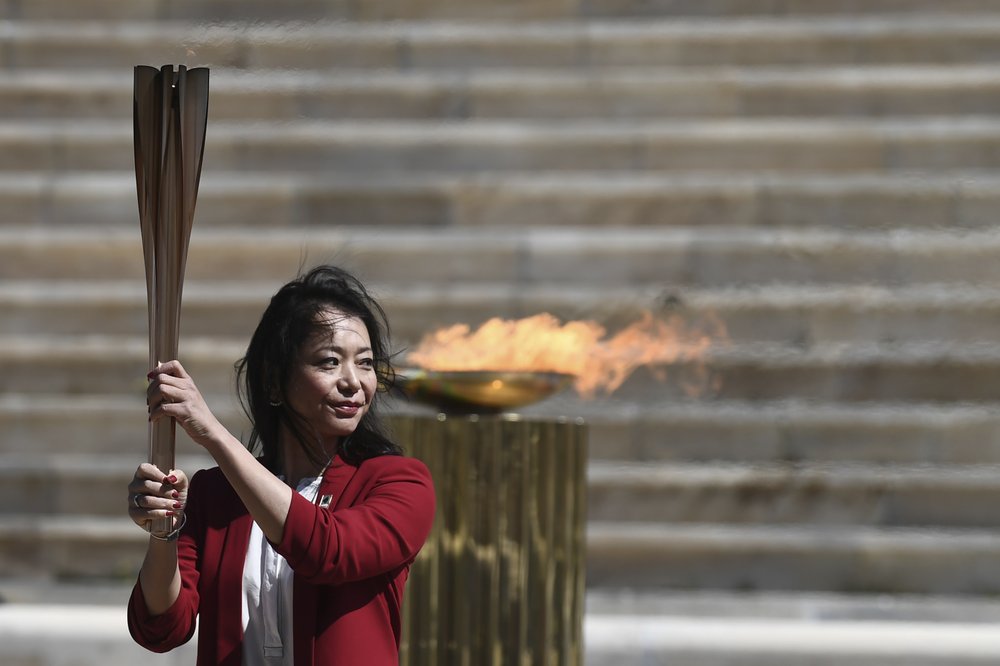A look back at Olympics that never were: 1916, ’40 and ’44

Former Japanese swimmer Imoto Naoko holds the Olympic torch during the Olympic flame handover ceremony for the 2020 Tokyo Summer Olympics, in Athens, Thursday, March 19, 2020. The ceremony was held behind closed doors and with the presence of few members of the media because of fears over the new coronavirus. (Aris Messinis/Pool via AP)
With more and more calls to postpone the Tokyo Olympics because of the coronavirus outbreak, it’s worth noting that this every-four-years spectacle has been rocked before by traumatic events.
Three other times, the games were canceled altogether because of World War I (1916) and World War II (1940 and 1944) — and in those latter two quadrennials, both the Summer and Winter Games were shelved.
A look at the Olympic Games that never were:
1916
Berlin was set to host the 1916 Summer Olympics (the Winter Games weren’t founded until 1924), beating bids from Alexandria, Amsterdam, Brussels, Budapest and Cleveland, according to GamesBids.com.
The German Empire even constructed a dazzling new facility to serve as the centerpiece of the games. Known as Deutsches Stadion, it opened well ahead of the games in 1913.
After the First World War erupted in July 1914, preparations carried on for a while since no one expected the hostilities to last another two years. But the horrific war lasted until 1918, eventually forcing the Olympics to be canceled.
The Berlin stadium was demolished some two decades later and replaced by a new structure that would serve as the main stadium for the 1936 Summer Games, when the German capital finally got another chance to host. Of course, Adolf Hitler had risen to power by then, leaving those games to be remembered ominously for promoting the Nazi regime that would eventually lead the world into an even more catastrophic war.
1940
In an era when the selected nation got the option of hosting both the Summer and Winter Games in the same year, Japan was a surprising choice as the first non-Western country to be awarded the Olympics. Tokyo was to be the summer host, with Sapporo getting the winter version.
Again, war got in the way.
Japan invaded China in 1937, prompting the Asian country to surrender its hosting duties the next year after some military leaders reportedly demanded that venues be constructed from wood because metals were needed for the war effort.
The International Olympic Committee hastily named Helsinki, runner-up in the initial bidding, to serve as summer city, with the winter events going to 1928 host St. Moritz, Switzerland. A dispute with Swiss organizers led to one more change, as the Winter Games were shifted a second time to Garmisch-Partenkirchen, the German host in 1936 alongside Berlin.
For more news about the novel coronavirus click here.
What you need to know about Coronavirus.
For more information on COVID-19, call the DOH Hotline: (02) 86517800 local 1149/1150.
The Inquirer Foundation supports our healthcare frontliners and is still accepting cash donations to be deposited at Banco de Oro (BDO) current account #007960018860 or donate through PayMaya using this link.